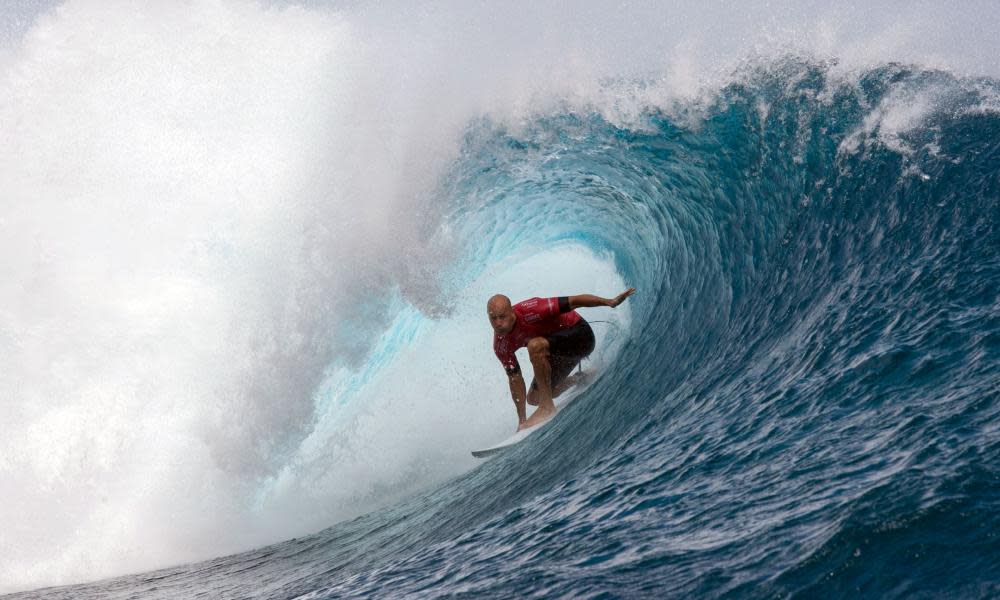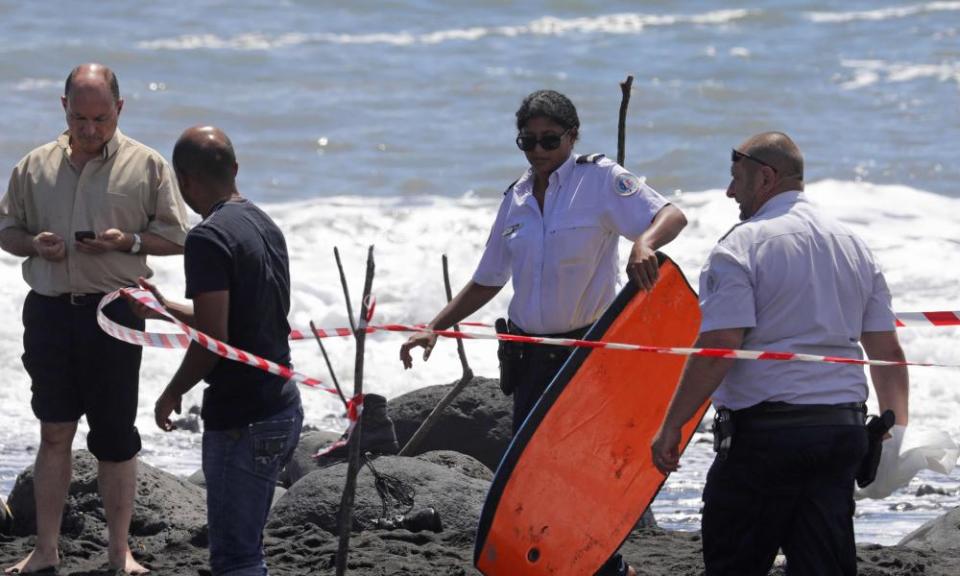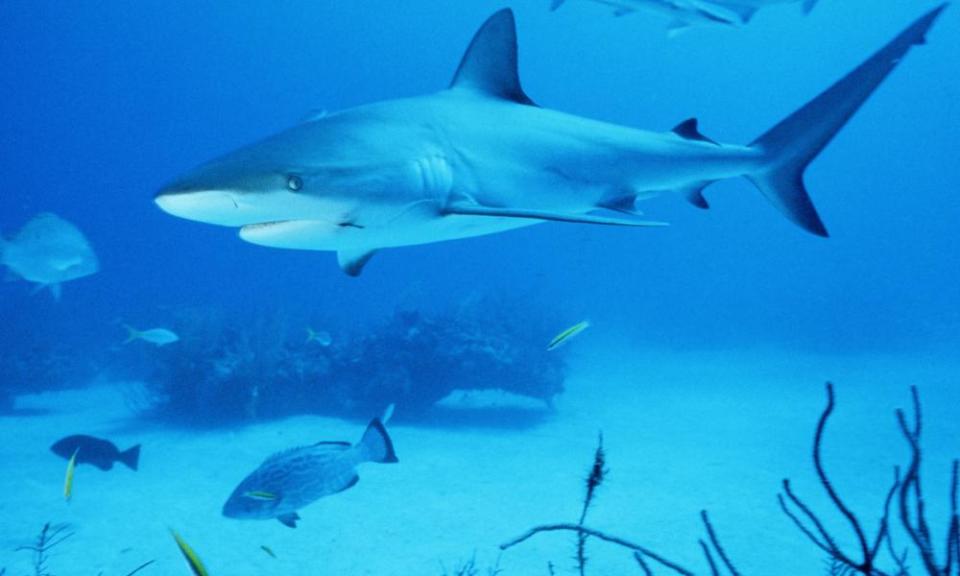Surf champion Kelly Slater calls for daily shark cull on Réunion

Two of the world’s top surfers have urged France to launch a major cull of sharks in the waters off Réunion after the eighth fatal attack since 2011.
Kelly Slater, crowned world champion 11 times, and Jeremy Flores, who grew up on the island, accused French authorities of not doing enough to counter the threat of aggressive bull sharks, described by local surfers as “war machines”.
So many man-eating sharks now circle Réunion, a French overseas department, that surfing is banned everywhere apart from two beaches that are protected by anti-shark nets. However, with the island’s waves considered some of the best in the world, surfers continue to take the risk.
“I won’t be popular for saying this, but there needs to be a serious cull on Réunion and it should happen every day,” said Slater. “There is a clear imbalance happening in the ocean there. If the whole world had these rates of attack nobody would use the ocean and millions of people would be dying like this. The French government needs to figure this out asap.”

“Things are getting really serious and we are tired of crying [for] our brothers,” said Flores after a shark killed 26-year-old body boarder Alexandre Naussac this week by biting through a major artery in his leg. “People are dying one after another and for some this sounds normal, but it really isn’t.”
Since 2011, there have been a total of 22 recorded attacks on the island, which lies 600 miles (965km) east of Madagascar. Laurent Chardard, 21, a tourist from France, lost an arm and a foot last August after a shark breached netting on Boucan Canot beach.
The comments reignited a row over France’s handling of the dangerous waters off its tropical island. Since 1999, Réunion has banned hunting sharks for food amid concerns their flesh is contaminated with ciguatera, a toxin that causes vomiting, nausea and, in rare cases, death. Locals say this has allowed bull and tiger sharks to take over the waters.
Réunion’s government insisted it was tackling the problem by catching and killing about 100 sharks a year, but this was not enough for surfers, who have described getting into the water as terrifying. Conservationists, however, have condemned calls for a daily cull.
“There are so many sharks in the water, it is traumatic,” said Gilbert Pouzet, 55, who has surfed in Réunion for 30 years. “Sometimes, I go down to the waves and I am not sure whether to go in the water or not; 80% of the time I go back home. Most of the time they strike from the side and take your hip and leg. They sever the femoral artery so you bleed to death in two minutes. The tiger shark will sometimes take an arm or a piece of leg and go away. But the bull shark becomes mad and finishes you off. When the bull sharks attack, they come to kill.”

Pouzet wants the government to do more and is backing demands for a daily cull.
“The bull sharks began to colonise because there was nothing to stop them,” he said. “Now we have an invasion on the west coast.”
The Réunion government said action was being taken but declined to comment on Slater’s proposal. An official told the Guardian on Friday that on top of the programme to capture and kill about 100 large sharks a year, it was investing in more nets and surveillance of the waters.
Meanwhile, conservationists and shark experts criticised the call for culling.
“It’s insane,” said Dr Ken Collins, senior research fellow at the UK’s National Oceanography Centre in Southampton. “There is a hierarchy in the natural world for a reason. If you kill all the sharks and the lions, the world would be a poorer place. Who has a God-given right to be in the ocean – the sharks or the surfers? I side with the sharks.”
He said alternative measures should be considered, including underwater pylons that create a shark-repelling magnetic field.

 Yahoo News
Yahoo News 